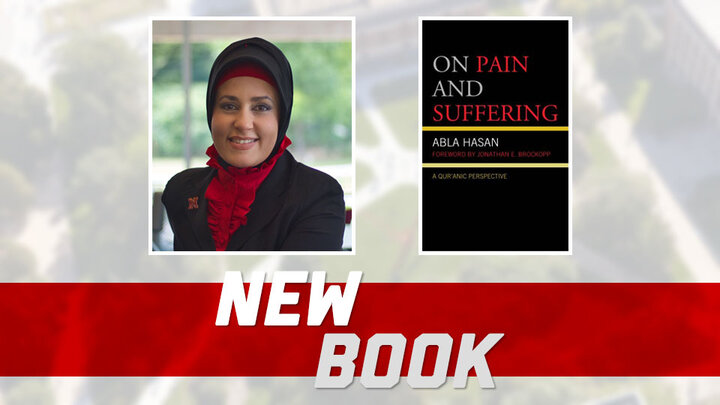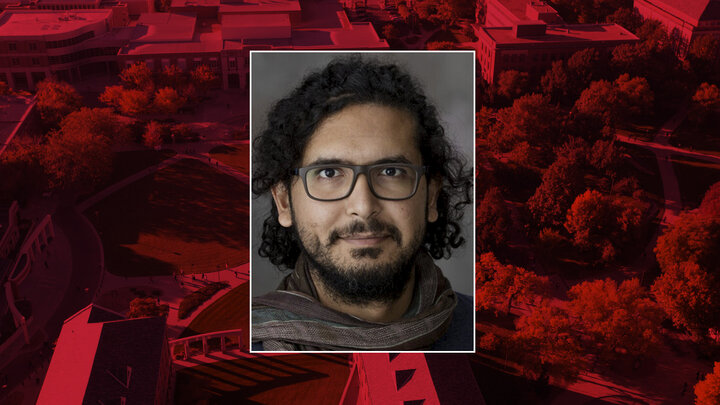"On Pain and Suffering: A Qur'anic Perspective," a new book from Abla Hasan of the Department of Modern Languages and Literatures, has been published by Rowman and Littlefield.
In the introduction, Jonathan E. Brockopp, a professor of history and religious studies at the Pennsylvania State University, wrote:
“It may be little comfort to think that life is hard because God made it that way, couldn’t God have made it easy instead? These and other similar questions are dealt with at length in this rich, complex book in which Professor Hasan walks the reader through some of the most vexing problems facing religious adherents today: what is the origin of Evil? Why do we suffer? What awaits us at the end of time? And while this book is focused on the Qur’anic message, all will benefit from reading it. After all, pain and suffering are universal phenomena”.
Hasan, an associate professor of practice of Arabic language and culture, argues for a distinction that should be made between two core Qur’anic stories. First, the creation of Adam and Eve and the sole exile of the Devil from paradise. Then a story that is usually misinterpreted as repeating or adding more details to the first story. In this second story, Adam and Eve are dismissed form an earthly garden, she argues.
“This is a book that should be read by everyone interested in the contemporary relevance of the Qur’an for important ethical questions facing humanity today,” says Brian D. Lepard, Harold W. Conroy Distinguished Professor of Nebraska’s College of Law.
The hermeneutical investigation of the Qur’an this book includes is an invitation to rethink the beginning, the end, and what is in between. As this book demonstrates, many useful arguments in Islamic heritage, which unfortunately has been jettisoned, marginalized, or even falsified, can be revisited as an alternative approach to the problem of evil and suffering and for the revival of another understanding of the beginning, the end, and the real meaning of our human journey and our divine merit as God’s gods on earth.
“From the beginning, Adam was created from earth to live on earth," Hasan writes. "Adam didn’t start his earthly journey in exile but in a divinely provided dwelling. He and his offspring are tested with evil. However, evil afflicts humans due to their divinity, which needs to be proven and reclaimed, not due to their so-called sinful nature. The two concepts of human divinity and evil—when understood as a test—come wrapped inextricably together. We can either live sleepwalking, totally unaware of our divine status, or otherwise, we can mindfully choose to be conscious of every step we take and every decision we make; however, in both cases we will still be fulfilling an unavoidable mission.”
More information about the book is available on the publisher's website.




